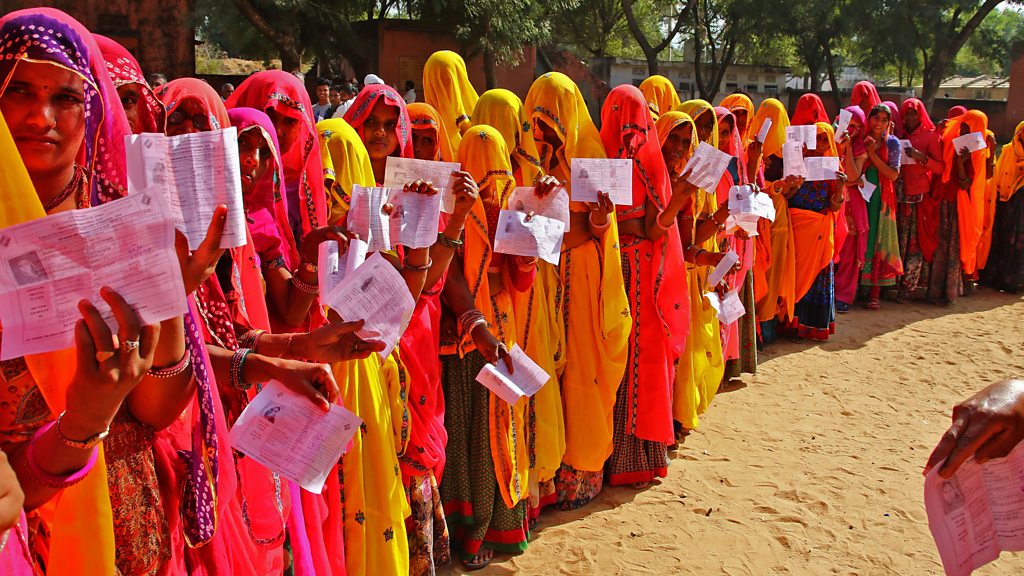

The BJP faces challenges from Congress party which is led by Rahul Gandhi. Gandhi's father, grandmother and great-grandfather are all former Indian prime ministers.
The 2019 election is reportedly viewed by many Indians as a referendum on the prime minister, Modi as some critics say his promises of economic growth and job creation haven't met expectations and India has become more religiously polarised under his leadership.
Under Modi, hundreds of millions of Indians have escaped poverty since the turn of the millennium but the country's economy appears to have lost some of its momentum.
Although annual GDP growth has hovered at around 7%, unemployment is a major concern.
Modi's government has also been accused of hiding uncomfortable jobs data.
Modi encouraged Indians in a tweet on Thursday morning to “turn out in record numbers and exercise their franchise”, singling out the 45m young people who have been added to the voter rolls since 2014.
2019 Lok Sabha elections commence today.— Chowkidar Narendra Modi (@narendramodi) 11 April 2019
I call upon all those whose constituencies are voting in the first phase today to turn out in record numbers and exercise their franchise.
I specially urge young and first-time voters to vote in large numbers.
India's general election has commenced as tens of millions of Indians across 20 states and union territories are voting in 91 constituencies.
Not fewer than 900 million eligible voters across the country are participating in the election, making it the largest election ever seen, according to BBC.
The seven-phase vote to elect a new lower house of parliament will continue until 19 May. Vote counting is scheduled for Thursday, May 23.
Prime Minister Narendra Modi's Hindu nationalist Bharatiya Janata Party (BJP) won a historic landslide in the last elections in 2014.
BJP versus Congress party
About 900 million Indians who are above the age of 18 will be eligible to cast their ballots at one million polling stations.
According to India's electoral laws, no voter is meant to have to travel more than 2km to reach a polling station.
With the large number of voters and enormous number of election officials and security personnel involved, voting will take place in seven stages between 11 April and 19 May.
The states starting the election on Thursday include: Andhra Pradesh, Arunachal Pradesh, Assam, Bihar, Chhattisgarh, Jammu and Kashmir, Maharashtra, Manipur, Meghalaya, Mizoram, Nagaland, Odisha, Sikkim, Telangana, Tripura, Uttar Pradesh, Uttarakhand, West Bengal, Andaman and Nicobar islands and Lakshadweep.
Meanwhile, Legit.ng previously reported that political parties in India are spending a lot of money for the purpose of creating hundreds of thousands of WhatsApp group chats to spread political messages and memes.
Plans were said to have been drawn up by BJP to have three WhatsApp groups for each of India’s 927,533 polling booths.
WhatsApp group contains a maximum of 256 members. This means that the number of group chats that will be created by BJP could theoretically reach more than 700 million people out of India’s population of 1.3 billion.
No comments:
Post a Comment